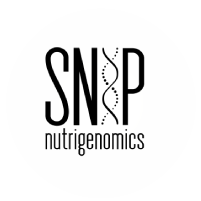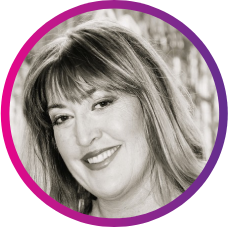Your personal code, or genetic expressions, is what directs your cells on how to create everything needed to keep your body working. There are many ways we can support our code and express our genes to their fullest potential. Our goal is always to enhance function from the cell level up to you as an organism. Cellular wellness is key: your body is designed to do everything you need to be well. However, like any code, if there’s junk in then there will be junk out. Our job is to give fuel (good nutrition), oxygen, clean light sources, and repair time (sleep) so that your cells can run multiple processes and stay healthy.
Evolution is being challenged to keep up with all the new ways humans are stimulating their systems. We are designed to experience our world and assess what the incoming data means. Our brain then decides to engage our nervous system based on determining whether the data coming in is safe or unsafe for us as an organism. The parasympathetic nervous system is activated to digest, rest, and repair or the sympathetic nervous system prepares us to fight, flee or freeze (pretending to be dead).
According to Dr. Bruce Lipton, our perception of modern living is pushing us into a state of sympathetic dominance, where our bodies are constantly in fight-or-flight mode. In this state, it is difficult for the body to heal because it needs rest to repair.
The goal is to do things differently and be more aware of how we are doing them. This small change is called an epigenetic hack or bio-hack. These activities will help us move from sympathetic dominance to parasympathetic dominance and support our metabolism to shift from burning glucose/glycogen to fat burning.
Sleep is critical!
Many people do not understand how important sleep is. They think that it is a choice and that it is not as important as other things. However, sleep is very important. It helps us to stay healthy and to be able to do other things well. Please look at the sleep chart to see how much sleep you need based on your age.
How much sleep you need changes as you age:
| Sleep recommendations by age group. | ||
| Age Group | Recommended Hours of Sleep Per Day | |
| Newborn | 0–3 months | 14–17 hours (National Sleep Foundation)1 No recommendation (American Academy of Sleep Medicine)2 |
| Infant | 4–12 months | 12–16 hours per 24 hours (including naps)2 |
| Toddler | 1–2 years | 11–14 hours per 24 hours (including naps)2 |
| Preschool | 3–5 years | 10–13 hours per 24 hours (including naps)2 |
| School Age | 6–12 years | 9–12 hours per 24 hours2 |
| Teen | 13–18 years | 8–10 hours per 24 hours2 |
| Adult | 18–60 years | 7 or more hours per night3 |
| 61–64 years | 7–9 hours1 | |
| 65 years and older | 7–8 hours1 | |
Sleep: Our relationship with the Sun rules our ability to sleep
- For millions of years, our ancestors’ bodies have been regulated by the sun and moon. But in 1809, the light bulb was invented. Now we use artificial light all the time, which has hijacked our body’s natural ability to regulate itself. We need to take steps to get back in sync with natural light in order to improve our sleep and overall health.
Get am sun directly on your skin and in your eyes if at all possible, 20 minutes is optimal but any is better than none.
-
- Midday if possible
- Watch sunset
- Lighting is critical:
- Full spectrum in the day, if possible the less you add after sun goes down the better you will do.
- Red light (fire ) will decrease cortisol and increase melatonin so it’s preferable to blue light (screen time).
- Directionality is critical: lower light not from above, shadows and lighting will affect our brain too
- Average sleep was 10 hours before the invention of the light bulb, now it is 7 and people are more focused on sympathetic activities at night
- Lights out protocol unfiltered sun in the day and none at night, sunrise, midday, and sunset with family, no overhead lighting, candles, and firelight is ok after the sun goes down. Lean into your biology.
Sun charges our body: it can help increase the exclusion zone (EZ) in the water in our cells. EZ water (also known as hexagonal water) is a type of water that forms in your cells. It stores energy like a battery and can give that energy to other cells that need it. EZ water makes your mitochondria stronger so you can produce more energy. It also acts as an antioxidant, protecting you from stress and slowing down aging, and improves protein folding across your whole body, which makes you more resilient to stress and speeds up recovery. EZ water in your cells: less sunlight makes you feel more drained thinking its wintertime. Go here for more from world leaders on hexagonal water (if you want to go down the EZ water rabbit hole).
Hormones and circadian rhythm are ruled by our sleep patterns
As the sun rises, our bodies experience more stress because of the light. Our stress hormone (cortisol) levels also continue to rise and they usually peak around 9am. They stay high until around 12 noon and then begin to go down in the afternoon. This happens until after the sun goes down.
As the day progresses, our stress hormone levels should decrease. This drop in cortisol levels allows for the release of melatonin (the sleep hormone) as well as increased levels of growth and repair hormones. Much of this repair and growth occurs in muscle tissue.
After sunset, our bodies start to wind down. Our bodies produce growth and repair hormones. At around 10pm, we start to sleep. This is when our body begins physical repair. This is very important, especially for people who have done physical exercise during the day. If we disrupt our sleep patterns, we disrupt our anabolic (build up)/ catabolic (tear down) processes. Between 10:00 pm and 2:00 am, the body goes through a dramatic process of physical repair. Between 2:00 am and 6:00 am, the body goes through a process of psychological repair. It is important that we go to bed between 10:00 pm and 11:00 pm, and that we wake up between 6:00 am and 7:00 am.
Deep sleep to help tissue repair and memory integration
During REM sleep, your body is working to repair tissues and cells. It is also beginning to reboot the CNS energy and function. This is a very important task after physical or mental stress has occurred. REM stands for Rapid Eye Movement because during this type of sleep your mind is more active than at any other time of the day. Without REM, information cannot be transferred from short term to long term memory. In a period of 8 hours of sleep, the body will accumulate 1.5 to 2.5 hours of REM sleep, which is necessary for recovery. However, this number goes down exponentially with age.
What can you do to improve your sleep?
- Regular time of going to sleep and getting up
- Gratitude/ meditation/ yoga, wind down methods
- What were 3 wins today, and 3 you want tomorrow to bring
- Yoga ideas for sleep
- Blue light blocking glasses
- Cool temperature in room,
- Historically it’s a drop in temperature
- Even a change in temperature (hot bath followed by cold room) to tell body its sleep time
- Deep sleep loves cold
- Heat turns off sleep switch and makes REM happen
- Cold shower or at least cold washcloth on forehead / neck
- Tape for mouth
- Clips for curtains when traveling
- Cover clock lights
- Ear plugs
- Hydration
- Mental setting down, get your meditation on
- Lavender spray to calm olfactory
- Pile towels on top of you, like a weighted blanket
- Sleep track that you go to sleep with as regular que
- Stop eating and drinking at least 2 hours before bed
- Avoid caffeine after 2:00 PM
Sleep cycles: 90 min cycle 4 sleep stages
Sleep happens in cycles. Each cycle is about 90 minutes long and has 4 stages. The first 3 stages are non-rapid eye movement (NREM) sleep, and the fourth stage is rapid eye movement (REM) sleep.
Stage 1 is light sleep. It lasts 1-7 minutes and is the stage where you transition from wakefulness to sleep. Your muscles relax and your breathing slows down during this stage. You can easily be awakened during Stage 1 sleep.
Stage 2 is intermediate sleep. It lasts 20 minutes and is a deeper level of sleep than Stage 1. Your body temperature drops a little during this stage, and it becomes harder to be awakened from Stage 2 sleep than from Stage 1 sleep. Stage 2 sleep is the best amount of time for a short nap-1 to 30 minutes- or for going long-90 minutes- to wake up feeling rested.
Stage 3 is deep sleep. It’s when your body repairs itself by growing new tissue, building new bone, and strengthening your immune system. This stage is very important for feeling rested and refreshed when you wake up. You’re very relaxed during deep sleep, your heart rate slows down, and your breathing becomes shallow. It’s hard to be awakened from a deep sleep, and if you are awoken, you’ll feel groggy or disoriented.
Stage 4: The fourth stage of sleep is called rapid eye movement (REM). During REM, your heart rate and breathing increase, your memories are stored, and your mood is regulated.
Just like we need the right environment to grow plants or rear animals, our bodies need the right environment to express our genes optimally. Managing our sleep is one of the most important things we can do for our health since it’s so intimately entwined with how well our cells function and communicate. Luckily, there are many things we can do support optimal sleep: following good sleep hygiene practices, consuming detoxifying foods and herbs, using natural light during the day and avoiding blue light at night, and spending time in nature. By making small tweaks to our lifestyle, we can make a big impact on our overall health and vitality.
Insomnia and lack of sleep can affect a number of genes (GAD1 is important for initiating sleep), but some that have been identified as being particularly sensitive to changes in sleep include those involved in the regulation of circadian rhythms, stress response, and metabolism. For example, the gene encoding the protein PER2, which is involved in the regulation of circadian rhythms, has been shown to be affected by insomnia. Additionally, genes involved in the HPA (hypothalamic-pituitary-adrenal and the CYP11B2 SNP) axis, which regulates the body’s stress response, have been found to be affected by lack of sleep. Furthermore, genes involved in fat storage (FTO, APOA2, and others ), and appetite regulation (MTHFR, MC4R-2, UCP, and AGRP) have also been shown to be affected by changes in sleep.
Curious about your genetics? Test with SNiP today.


